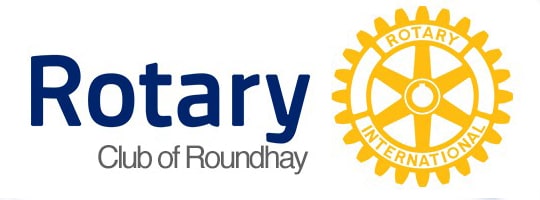Tony Allinson, Chair of the Sylvia Wright Trust for the last 16 years, came to the club to give us an update on the amazing work the Trust has been doing for deaf and disabled people in Tamil Nadu, in south India.
Sylvia Wright herself last visited our club in 2018 just after her 80th birthday. Her life is an inspiring story of selfless dedication and dazzling achievements. Educated in Leeds, she trained as a nurse, worked at the LGI as a ward sister, moved to community medicine in the inner city, then became a senior lecturer at what is now Leeds Beckett University.
Sylvia is a lady of profound religious conviction. At the age of 41 in 1982, she gave away all her possessions and went to live in the impoverished area of Tiruvannamalai, Tamil Nadu, in south India, where medical help was virtually non-existent. There she established the Sylvia Wright Trust, a registered charity, which through voluntary donations managed to fund all the building and running costs of her projects over the next 40 years.
Sylvia’s first project was to run a mobile village clinic from a van. In 1985 she acquired her first hospital, in 1996 she had a school for deaf children built on donated land, in 2004 she opened two centres for children with severe mental and physical disabilities, and in 2009 she founded a Nurse Training College.
In 2013 Sylvia established the Ragammal School for deaf children. Rotarian Carol Jordan went out to visit the school and then inspired us to make a contribution of £3,186 which we were able to increase to £12,000 with matching grants from Rotary District 1040 and Rotary International Foundation. This was used to fund a computer training room, and in partnership with the Rotary Club of Moon City in Tirvannamalai, it was fully equipped by December 2013 with 30 computers in operation.
When Sylvia visited us in 2018 her Trust was overseeing the running of a 200 bed hospital with a dialysis ward with over 20 life-saving machines, a wide range of regular clinics for patients with TB, diabetes and cardiac problems, a free boarding school for over 200 profoundly deaf children, a nursing college for 80 students, and two day centres for children suffering with cystic fibrosis, cerebral palsy, Down’s syndrome and other disabilities.
She told us that ‘It has all been done through faith, hard work, determination and marvellous supporters’. In reporting her visit, I wrote:
We suspect that the whole project depends on her energy and inspirational and charismatic leadership. Recently celebrating her 80th birthday on site, where she lives, ‘Madam’ as the residents call her, shows no sign of slowing down.
Six years on, Tony was able to give us an update. Sylvia’s enthusiasm is undimmed, but she has had to slow down. She badly injured her elbow in a fall on a visit to the UK and is currently resettled in a Methodist home in Headingley. She hopes to return to India in July, and continues to work as ambassador for the Trust in the UK. Tony speaks to her every week.
State medical provision has improved with the opening of a large hospital, which made it sensible to sell the Trust’s hospital project to a group of local doctors, as the increasing cost of medicine made it impractical to run a charity hospital with heavy subsidies from the UK.
The residential deaf school continues with great success, entirely funded by the Sylvia Wright Trust. Early socialisation is very important for deaf children, so the intake has now been expanded to include two classes starting at age three. 200 children are educated in small classes by 32 teachers backed up by domestic staff. All are taught to GCSE standard and half go on to A level, progressing to further education including university. Teaching the deaf English and IT skills significantly enhances their employment opportunities. Following an initiative started by the Rotary Club of Headingley, all are now equipped with hearing aids, maintained by staff who have trained as audiologists.
The centres for children with severe mental and physical disabilities continue to flourish, with a new building adapted for wheel chairs and a staff of 20 physio and occupational therapists. The Trust funds one third of the cost. A water therapy pool has been funded by the Rotary Club of Headingley.
The nursing college continues and has expanded. Up to 100 nurses are trained over a three year course with excellent results and good jobs obtained on graduation. Tony told us that many of the trainees are local village girls who are very compassionate.
Tony described Sylvia’s management style as that of a benign dictator, taking all decisions herself and expecting others to do as she told them. This could not go on forever, and succession planning is well under way. Excellent new people have been appointed to the governing body, with experience as auditors, entrepreneurs and organisational specialists.
Fundraising has changed its focus to become ‘Indian led’. The Trust cannot remain responsible for everything: the plan is for funding by the Trust to continue as its present level for the next three years and then to gradually diminish, but funding to remain available thereafter for extras. The day centres and deaf school are free to the users. The nursing college charges fees but fees can be subsidised from a bursary fund.
In thanking Tony for his update, Rtn Roger Cannon observed that Sylvia’s vision had been the inspiration, but that it could not be realised without the hard work of Tony and the trustees. They have done a lot of good for a lot of people.

